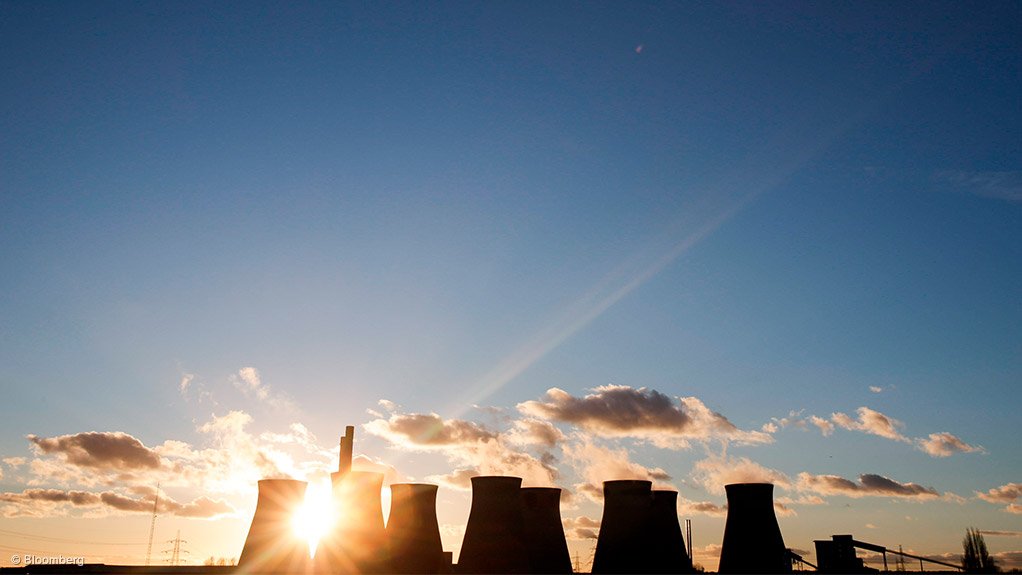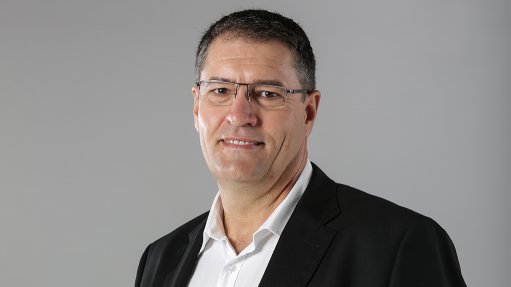Cheap natural gas is about to kick more coal out of Europe
FRANKFURT – Cheaper natural gas prices this year are likely to cement Europe’s shift away from coal as a fuel for producing power.
Abnormally mild winter weather has cut demand for the fuel as a flood of new supplies entered the world’s biggest gas market. That along with higher costs for carbon-emissions allowances has tilted the economics of generating electricity away from coal and toward using more gas.
The shift has been welcomed by policy makers led by German Chancellor Angela Merkel’s administration, which is looking at ways to accelerate the closure of its coal industry. Its priority is keeping power flowing while reaching ambitious pollution targets in the Paris Agreement on climate change. A lower cost for gas helps along that process.
“Policy makers in Europe are now happy with such low natural gas prices,” said Ewout Eijkelenboom, senior consultant at the Netherlands-based industry adviser Kyos Energy Consulting. “It makes the coal phase-out easier than expected -- it is almost a natural way of exiting coal.”
Falling gas prices are a global phenomenon. Liquefied natural gas projects are pumping out record numbers of cargoes, cutting wholesale gas costs from the US to Asia. That, in turn, has helped push down the cost of electricity across Europe, taking some of the heat out of the political debate about energy.
Benchmark gas in Amsterdam plunged to a five-month low last week because of the global glut. Market rates for the coming summer are at the lowest since at least 2007. It’s especially notable that the weakness has arrived during the winter, which is peak-demand season.
Instead, Dutch front-month futures are expected to fall more than 10% to 9.40 euros ($10.42) a megawatt-hour by June before finishing at about 14 euros at the end of the year, according to the median estimate of 10 analysts surveyed by Bloomberg. That’s on par with the average for 2019 and well below last year’s peak of more than 23 euros. Those levels make it more attractive to fire up gas power plants instead of those using coal.
“From April on, we could see the risk of prices really dropping,” said Murray Douglas, a research director for European gas at Wood Mackenzie Ltd. “Coal-to-gas switching will play an even more important role in rebalancing the markets.”
Some respite could come if enough gas plants come online. Since the summer, the Bloomberg German year-ahead spark spread model, which measures the profitability of using gas to generate power, has surpassed the dark spread, the reference for burning coal. The premium is the widest ever, and underlines the growing economic viability of coal-to-gas switching across Europe.
Germany’s Economy and Energy Minister Peter Altmaier said last week that gas plants that are now unprofitable to run will grow in importance as the nation phases out both coal and nuclear generation. Meanwhile, demand for power is expected to surge as the government encourages electrification of everything from transport to home heating.
“We’ll need to do something with all that surplus gas,” said Elchin Mammadov, a European utilities analyst at Bloomberg Intelligence. “I’m expecting a further drop in prices and more coal-to-gas switching.”
So far the glut shows little sign of easing. Pipeline supplies are robust, with Russia expected to overcome US sanctions and open the Nord Stream 2 direct link to Europe later this year. Meanwhile, LNG flows are set to grow with new production from projects in the US to Qatar and Australia.
The oversupply has been exacerbated by the weather. This winter is likely to be among the warmest for the past 30 years in Europe. That has cut demand for heating and kept gas stocks unusually high at a time of year when they usually drop rapidly.
“It’s going to be painful,” said Carlos Torres Diaz, head of gas market research at Rystad Energy, a Norwegian research company. At the end of the heating season in March, “we’re going to end up with high storage levels again.”
Comments
Press Office
Announcements
What's On
Subscribe to improve your user experience...
Option 1 (equivalent of R125 a month):
Receive a weekly copy of Creamer Media's Engineering News & Mining Weekly magazine
(print copy for those in South Africa and e-magazine for those outside of South Africa)
Receive daily email newsletters
Access to full search results
Access archive of magazine back copies
Access to Projects in Progress
Access to ONE Research Report of your choice in PDF format
Option 2 (equivalent of R375 a month):
All benefits from Option 1
PLUS
Access to Creamer Media's Research Channel Africa for ALL Research Reports, in PDF format, on various industrial and mining sectors
including Electricity; Water; Energy Transition; Hydrogen; Roads, Rail and Ports; Coal; Gold; Platinum; Battery Metals; etc.
Already a subscriber?
Forgotten your password?
Receive weekly copy of Creamer Media's Engineering News & Mining Weekly magazine (print copy for those in South Africa and e-magazine for those outside of South Africa)
➕
Recieve daily email newsletters
➕
Access to full search results
➕
Access archive of magazine back copies
➕
Access to Projects in Progress
➕
Access to ONE Research Report of your choice in PDF format
RESEARCH CHANNEL AFRICA
R4500 (equivalent of R375 a month)
SUBSCRIBEAll benefits from Option 1
➕
Access to Creamer Media's Research Channel Africa for ALL Research Reports on various industrial and mining sectors, in PDF format, including on:
Electricity
➕
Water
➕
Energy Transition
➕
Hydrogen
➕
Roads, Rail and Ports
➕
Coal
➕
Gold
➕
Platinum
➕
Battery Metals
➕
etc.
Receive all benefits from Option 1 or Option 2 delivered to numerous people at your company
➕
Multiple User names and Passwords for simultaneous log-ins
➕
Intranet integration access to all in your organisation




















